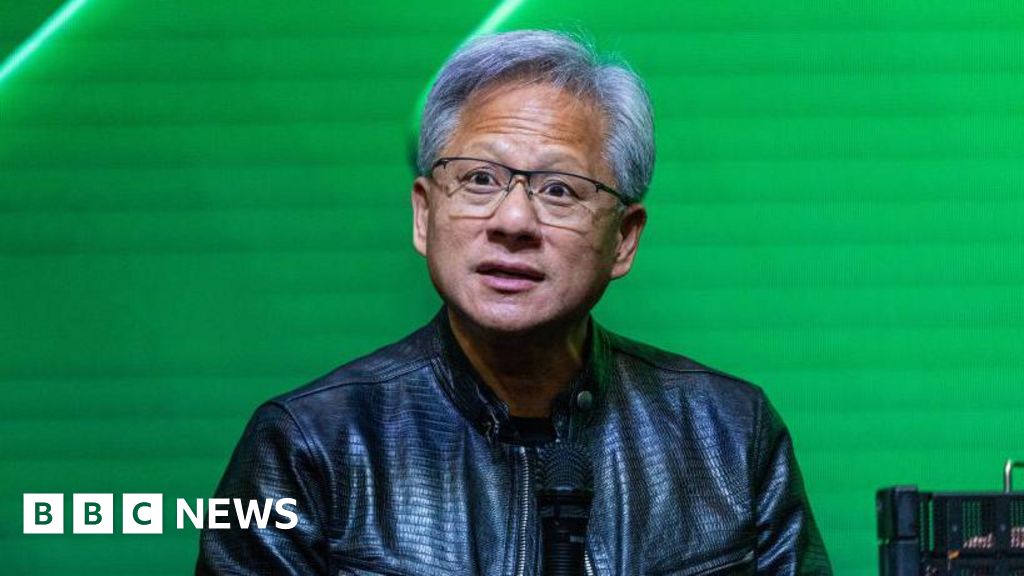Artificial intelligence (AI) chip maker Nvidia’s shares fell on Wall Street even as the company reported sales more than doubled, sharply beating expectations.
Nvidia announced record revenue of $30bn (£24.7bn) for the three months.
The company has been one of the biggest beneficiaries of the AI boom, with its stock price soaring to more than $3 trillion.
But while analysts had grown accustomed to Nvidia’s “phenomenal” revenue growth, the latest results suggest “the rate of growth was starting to slow,” said Simon French, head of research at Panmure Liberum.
Analysts had expected sales to rise by $28.7 billion for the three months ended July 28.
Nvidia outperformed, with revenue up 122% year over year.
However, Nvidia’s shares fell 6% in after-hours trading in New York.
“It’s not a question of beating expectations right now,” said Matt Britzman, senior equity analyst at Hargreaves Lansdown. “The market is expecting a big underperformance, and the size of the upside today seems to have been a bit of a disappointment.”
“Generative AI will revolutionize every industry,” Nvidia CEO Jensen Huang said in announcing the latest results.
But Mr French told the BBC: “If we are to raise expectations that high, we have to continue to maintain phenomenal rates of growth.”
He added that the company’s current AI chip, Hopper, is selling well, but the next-generation Blackwell chip “is experiencing some production delays, which is probably one of the reasons why Wall Street sold the company’s shares in after-hours trading.”
Nvidia’s earnings release has become a quarterly event that sees stocks trade frenzy on Wall Street.
According to The Wall Street Journal, a “viewing party” was planned in Manhattan, where Hwang, known for his trademark leather jacket, has been dubbed the “Taylor Swift of tech”.
Alvin Nguyen, a senior analyst at Forrester, told the BBC that Nvidia and Huang had become the “face of AI”.
While this has been a positive for the company so far, Nguyen said it could also hurt the company’s valuation if AI doesn’t deliver after companies have invested billions of dollars in the technology.
“1,000 AI use cases aren’t enough. We need 1 million.”
Nguyen also said Nvidia’s first-mover advantage means the company has market-leading products that customers have used for decades and a “software ecosystem.”
He said rivals such as Intel could “chip away” at Nvidia’s market share if they develop better products, but that would take time.



